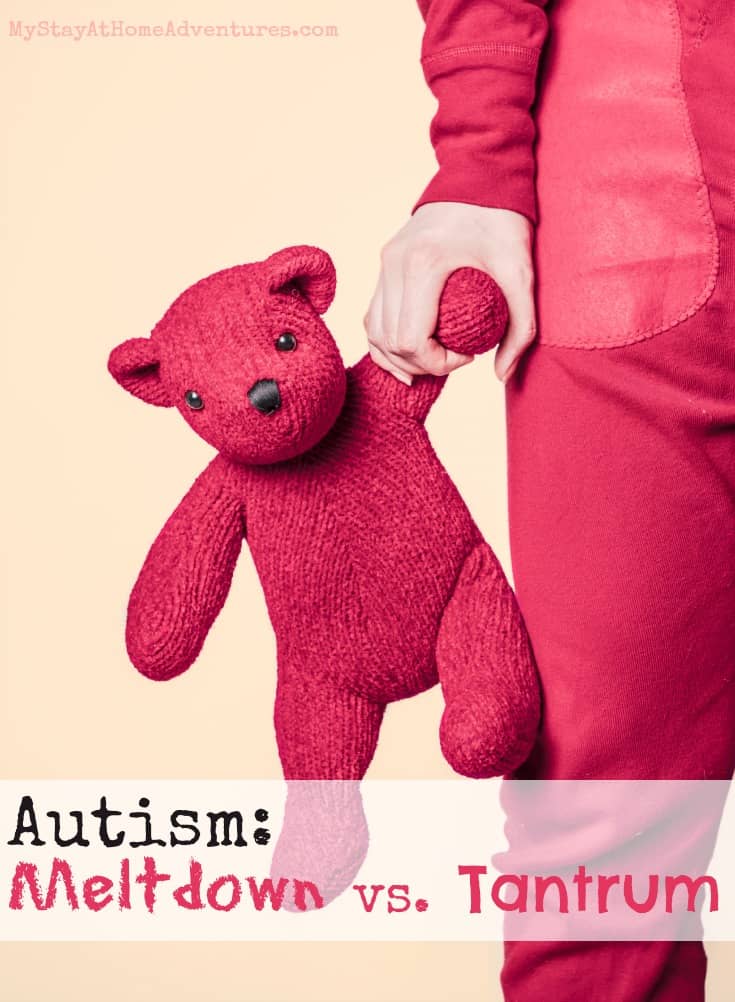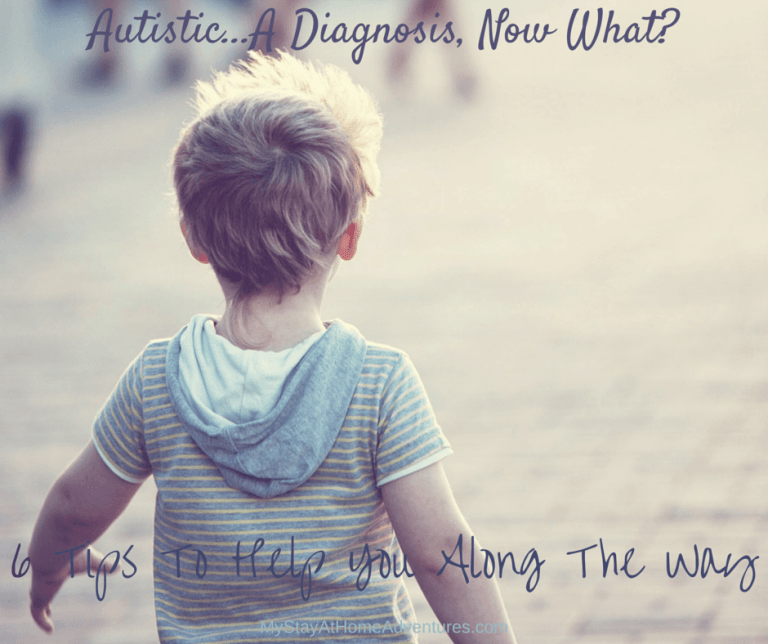Autism Meltdown vs Tantrum
This post may contain affiliate links which might earn us money. Please read my Disclosure and Privacy policies hereThis is such a great post where you will learn the differences between Autism meltdown vs tantrum. I hope you enjoy this post and share it with others.
The first thing you need to determine is if it is a meltdown related to an autism spectrum disorder in which the child is in sensory overload or a tantrum a child is throwing with no special needs that is wanting to get their way at all costs through their behavior. If your child has already been diagnosed then you will be one step closer and can take out the guess work of which one it is. If your child has not been evaluated and diagnosed then this will be the beginning of you collecting information that will help determine which one it is and be able to proceed to the necessary steps.
A meltdown at first appearance may look like a temper tantrum. Whether it is your child or a child you see at the store behaving in a way that society has deemed being “bad”. It is automatically assumed the parent doesn't know what they are doing. That the kid is just a spoiled brat and needs a smack or spanking.
The funny thing is 20 years ago before my daughter was evaluated and diagnosed…before I lived it…I felt the same way. I feel that I have become an expert when it comes to my daughter's personality, disorders, behaviors, treatment, likes and dislikes. Of course it has taken many years and lots of research as well as trial and errors. I also keep an open mind to new treatments and different techniques with keeping up with the changes on this topic. With all that said she still keeps me on my toes with new triggers, behaviors and self comforting actions.
2. A meltdown includes a total disregard to safety to them and others. Often times you will see self -harm behaviors. A temper tantrum they are careful not to hurt themselves…even if they appear to be that usually is not the case. If they find they may have hit their head too hard for example, you will see their reaction to it and they will stop.
5. Special needs children may be capable of having both a meltdown and a tantrum. I learned this first hand with my daughter. Again it will take time to learn the difference so you can handle the situation in the proper way.
 What to do with a meltdown
What to do with a meltdown
1. The number one way I learned to handle a meltdown is trying to avoid one!
Once they cross the point of no return it will be very difficult to watch and to handle until they are able to gain control again.
Pay attention to possible triggers and if you notice them take the child out of the environment before the overload happens. For example one trigger for my daughter is crowded places with lots of people and noise. Even a small get together at my place with family will trigger a meltdown. In this case I plan ahead, if we are at home then I will take her in a quiet room by herself and distract her with the things she likes. Listening to music, looking at photos or magazines or watching a show/movie she likes.
Once she feels comfortable and calm she will come back out for a little bit until she is feeling overloaded again. Your child will show signs of the impending meltdown before they lose control. I learned my daughter will show instant agitation in her body language before she says a word and her body movements that she uses to help calm herself are visible. All kids are different so it is only natural that their triggers and behaviors will be customized to them. Your job is to decipher them and to take action before the meltdown occurs.
2. If your child has passed the point of no return…hold on because it's going to be a bumpy ride!
No matter how much we plan and try to prepare to avoid these meltdowns, the truth is we can't do it every time. This is a hard one even after years of experience but staying calm yourself will help the situation even though you don't think it is.
Our children can sense our anxiety, fear and anger with regards to their behavior which in return will add to their already overloaded sensory which is causing the behaviors to begin with. Remind yourself during the meltdown the reasons they are having the meltdown. This may help you stay focused on being calm and helping them get through it. As easy as it is to take their behavior personal…don't get stuck in that. This has nothing to do with you and everything to do with them feeling uncomfortable, out of control, and overloaded.
3. When my daughter has her meltdowns my number one concern is her and others safety.
Especially as she got older and stronger. I will tell you how I handle it but everyone is different and you need to do what is best for you and your child.
If you are at home make sure anything they can use to throw is not in reach. Make sure other children are in a different room until they are able to gain control again. Unless they are doing something that is going to cause them or someone else harm stand back and wait. You will feel helpless…but at this point the goal should be getting them through this without harm to anyone…including yourself.
My experience with my daughter was more of a hands on because her meltdowns almost always included her self injurious behaviors like banging her head on anything including windows. I was taught different holds by specialists to be able to keep her from this behavior until she was able to calm down. It is emotional and exhausting for us both but it is what I have to do to keep her safe.
4. If it happens in public there are more things into play when a meltdown occurs.
I could write a book just on this one topic! My daughter is 27 years old so you can imagine the experience I have with her meltdowns in public. The dangerous and scary incidents that occurred with the added dangers of being in public.
How strangers treated us. The embarrassing situations I had to learn to deal with. Through trial and error I learned what was the safest and most effective way for us. No matter where we were or what we were doing I would take her out of the environment that was causing the overload immediately. Before I knew she had special needs I would get angry and insist I was the parent and she was going to do what I said.
This caused a lot of unnecessary meltdowns, embarrassment and dangerous situations that could have been avoided. It is frustrating to say the least but the alternative is much worse. Depending where we were, I would take her to the closest and quietest place at an attempt to avoid the full blown meltdown. It might be the bathroom or our car.
I would talk to her and give her that time to regain control before it was too late. Sometimes this works and we can continue with whatever we were doing but other times when she is continuing to be agitated and not able to calm down then we leave. Period! After finding ourselves in too many out of control situations, her and others safety comes first no matter how much of an inconvenience it was or is.
5. I know in our situation once the meltdown is over my daughter always feels horrible.
Tears will stream down her face and with her 3 year old language skills she will apologize over and over how sorry she is.
First, even though emotions are wound up even by the parents after these meltdowns we don't calm down fully by the snap of the finger. We are upset, frustrated, heartbroken, helpless and even angry. Once your child regains control and they are safe YOU need to take a moment…a time out to allow yourself to feel and process. I definitely should have done this one more! We are human and need that time to calm down ourselves or cry if we need to.
Second, remind yourself as often as you need to that they can't help what is going on inside them to behave this way. They don't like it anymore than you do. Don't yell at them or hit/spank them out of anger and frustration. This will only make them feel worse. This will not help them learn to live with this. It will not teach them techniques to handle when they are overloaded. That will teach them they are bad. The way I look at the spanking is, you don't like their violent or aggressive behavior so to teach them not to do it, you are going to be violent and aggressive to them. What?! Just doesn't make sense to me!
In closing
I could go on and on about this subject but I will save it for more writing projects in the future. It will take you time to learn your child, their triggers, the signs of agitation before a meltdown occurs. You will be able to avoid it at times but be prepared you will not always be able to do that. Do your research and talk to doctors and other family members that have a special needs child. Be open minded and try different techniques until you find what works for you, your child and family.
Sherry Roberts is back to writing about something very personal to me and my family, Autism. This post is called Autism: Meltdown Vs Tantrums and she goes over steps on how to identify the differences between a meltdown and tantrum. Let's welcome Sherry back to My Stay At Home Adventures.







Thank you for sharing – I’m sure all parents want ot be able to identify these differences and act accordingly….this list makes it feel very doable! #TheHappyHomeLife
Thank you Miss Steph!
I just posted a video to my page in which a mother had an episode with her toddler who has autism. It was heartbreaking to see how some people can judge her parenting skills without knowing what was going on. I hope this post educates even the people that do not care for someone with autism.
When I worked retail I have witness how cruel people can be. It was such a terrible thing to witness and one that I will remember forever! Thank you for support and understanding. We need all the support we can get.